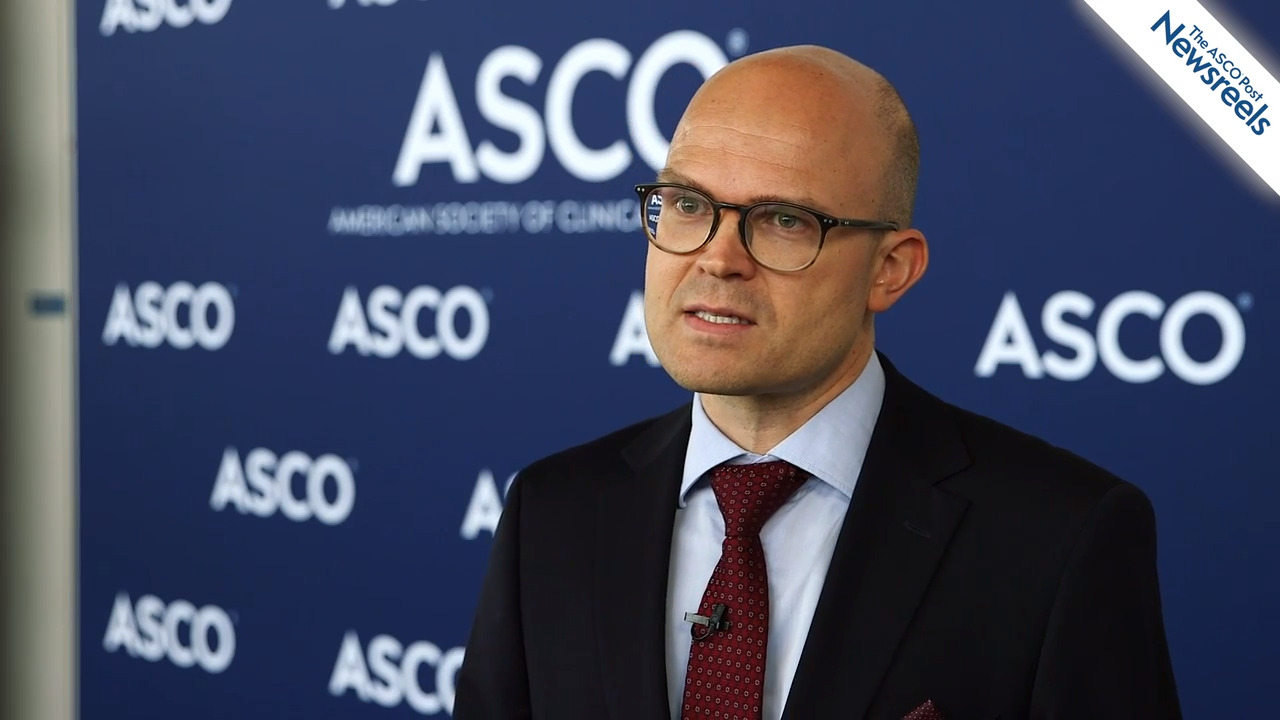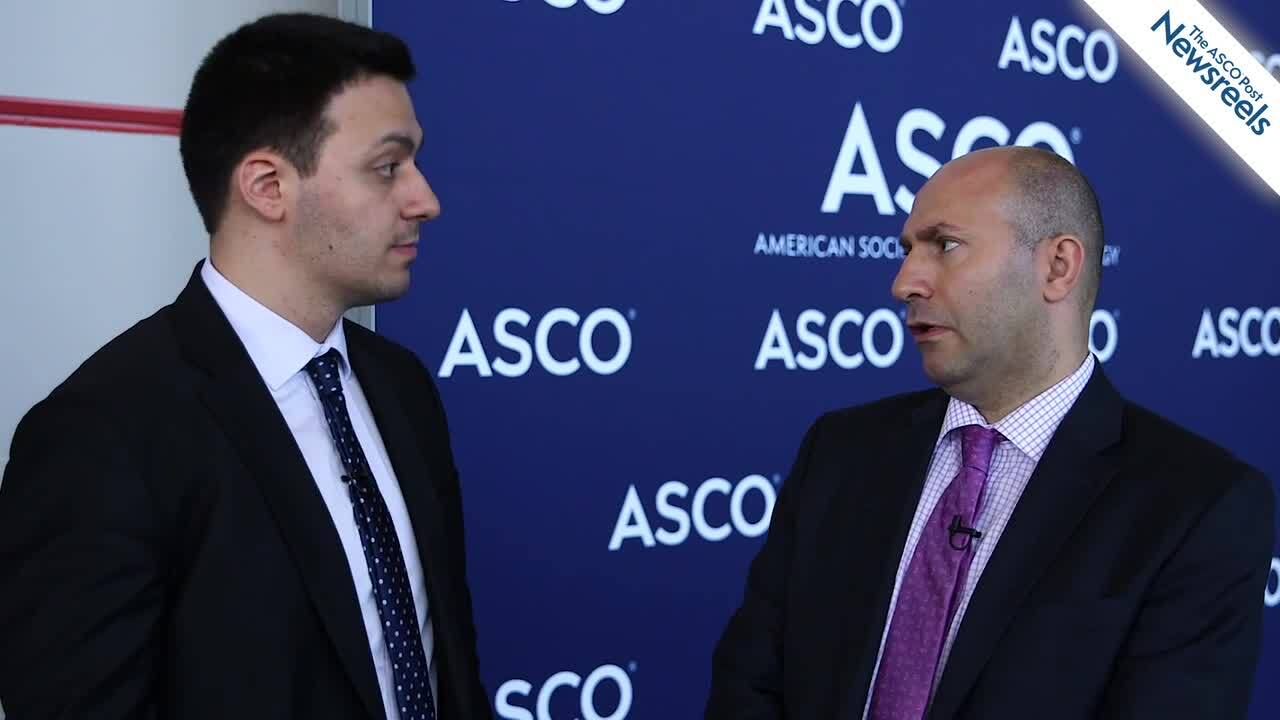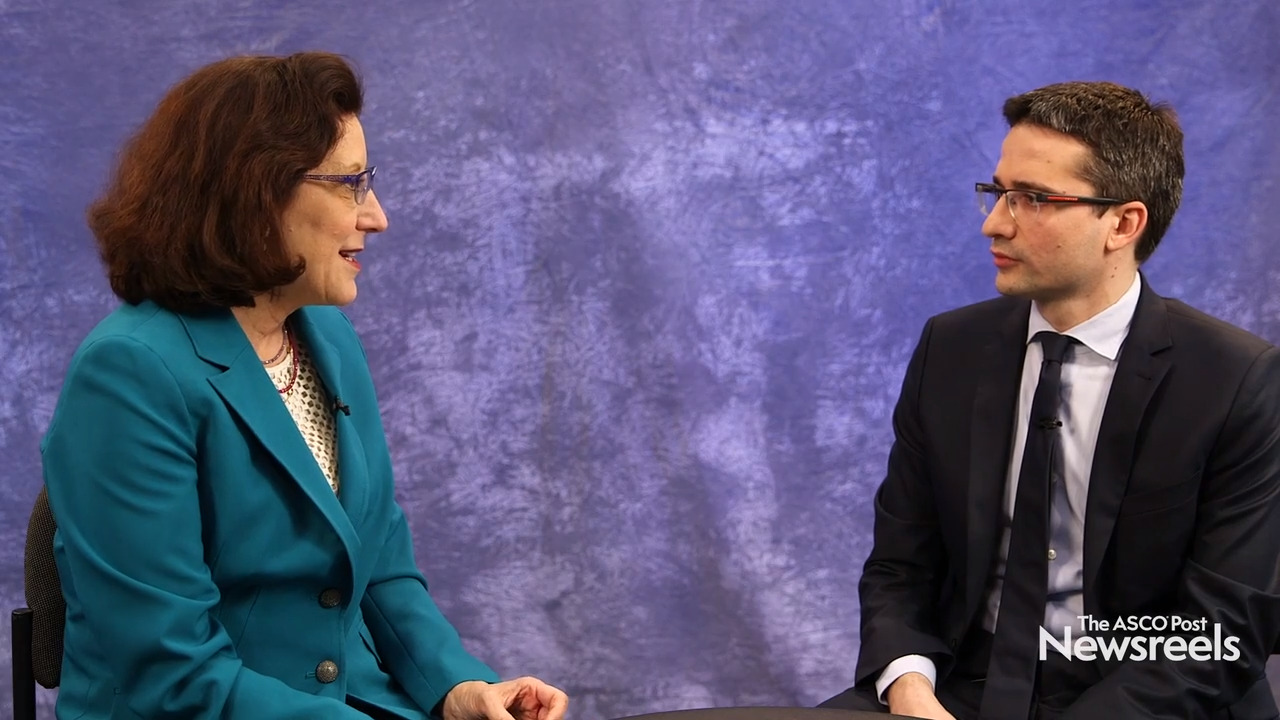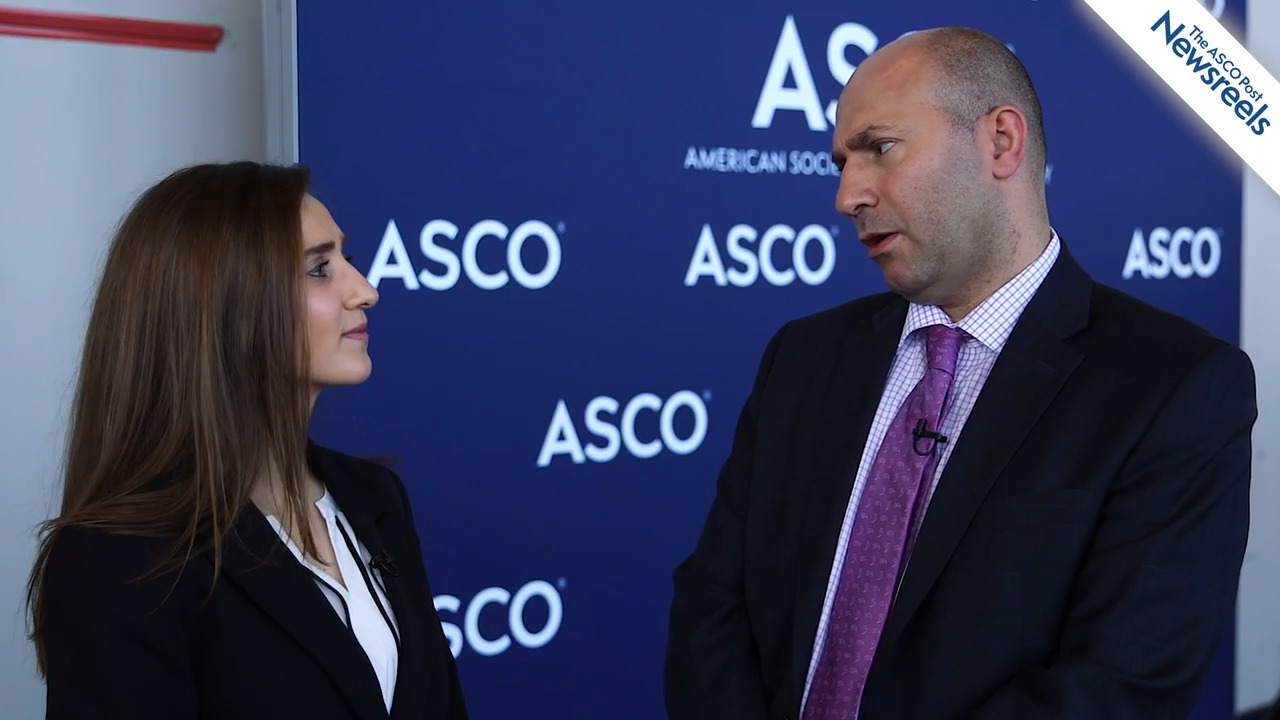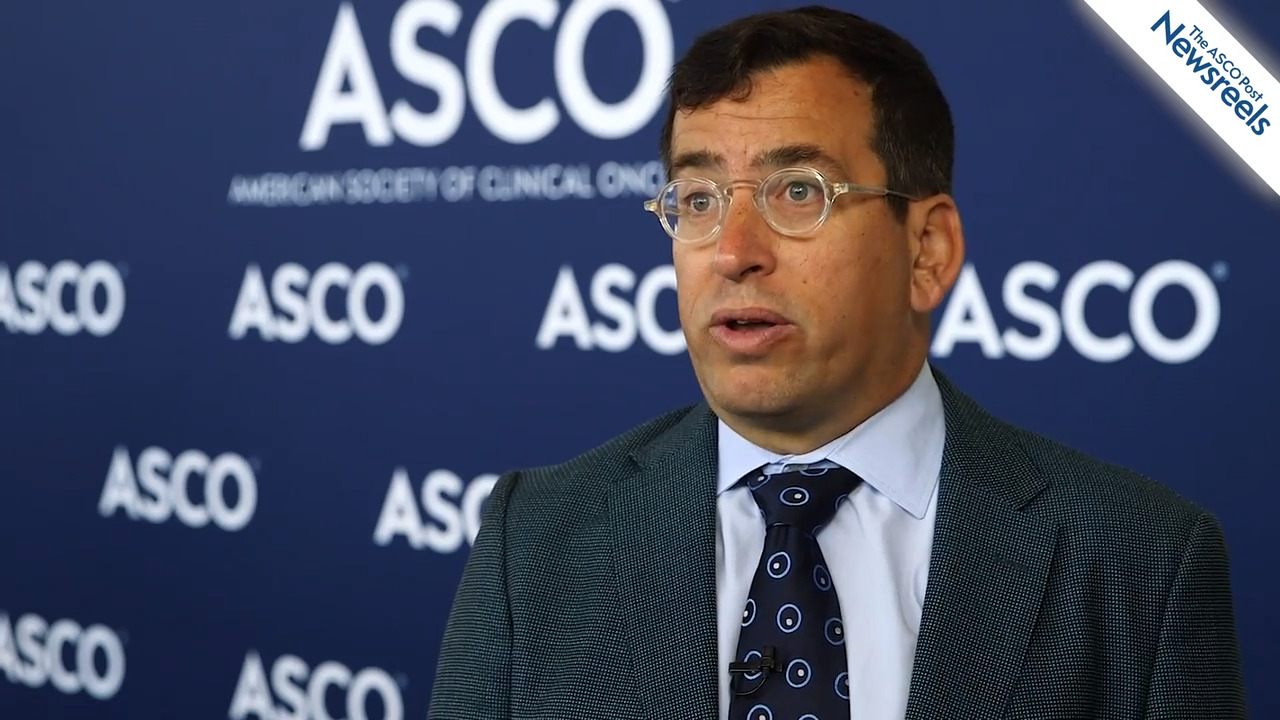Miriam Knoll, MD, and Richard J. White, DO, on Non–Small Cell Lung Cancer: Predicting Radiotherapy/Immunotherapy Treatment Outcomes
2019 ASCO Annual Meeting
Miriam Knoll, MD, of Hackensack University Medical Center, and Richard J. White, DO, of Allegheny Health Network, discuss improved overall survival among younger female patients with non–small cell lung cancer who have a lower comorbidity score, lower grade, private insurance, and treatment with intensity-modulated radiation therapy (Abstract 9024).
Åsmund A. Fretland, MD, of Oslo University Hospital, discusses clinical trial findings on survival outcomes after laparoscopic vs open resection for colorectal liver metastases. The study he conducted with his team showed that the laparoscopic procedure did not jeopardize long-term survival (Abstract LBA3516).
Toni K. Choueiri, MD, and Ziad Bakouny, MD, both of Dana-Farber Cancer Institute, discuss a retrospective review of genomically profiled patients with sarcomatoid/rhabdoid renal cell cancer who were found to have better outcomes with immune checkpoint inhibitors and to harbor mutations associated with poor prognosis (Abstract 4514).
Matteo Lambertini, MD, PhD, of the University of Genova and Policlinico San Martino Hospital, and Hope S. Rugo, MD, of the University of California, San Francisco, discuss findings from the SOPHIA trial on margetuximab plus chemotherapy vs trastuzumab plus chemotherapy in patients with HER2-positive metastatic breast cancer after prior anti-HER2 therapies (Abstract 1000).
Toni K. Choueiri, MD, and Sarah Abou Alaiwi, MD, both of Dana-Farber Cancer Institute, discuss the association of polybromo-associated BAF-type mutations with overall survival in patients with different solid tumors treated with checkpoint inhibitors (Abstract 103).
Edward B. Garon, MD, of the David Geffen School of Medicine at the University of California, Los Angeles, discusses long-term survival data on patients with advanced non–small cell lung cancer treated with pembrolizumab and those with PD-L1 expressed in at least half of their tumor cells (Abstract LBA9015).
